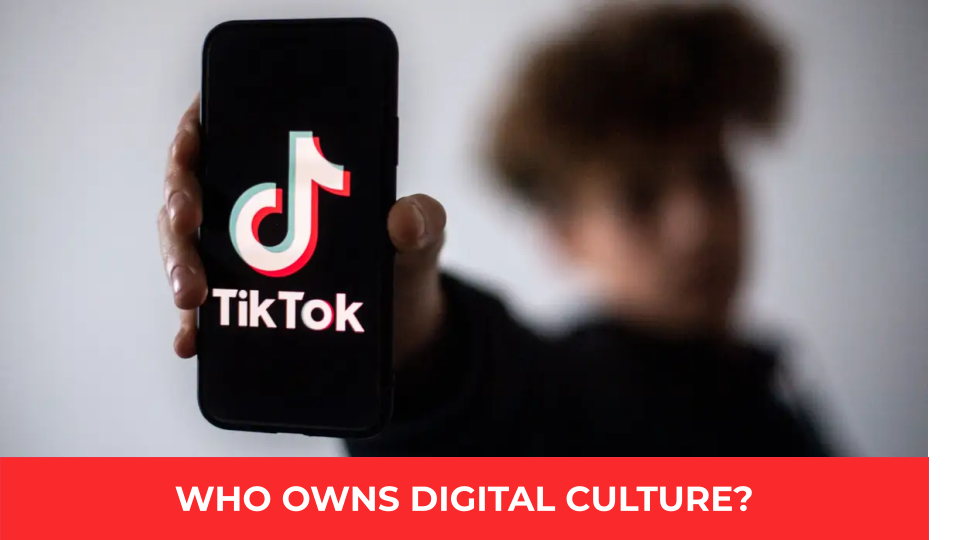
by Lorenzo Holder
Growing up outside of the USA in the 1990’s meant lagging behind popular culture by approximately a year or at least the time it would take for network providers and film studios to dub original language content into German. As a result most of my friends and my peers in Germany were completely unaware of the latest cartoons, movie or music releases and thus unable to participate in the latest discourse within youth culutre. In my household we had an American satellite dish that gave us access to Hollywood’s latest creations and as a child I always had the feeling of living in the future.
Today trends and youth speak travel instantaneously through the web and spread around the world like wildfire. Whether it’s a catchy song, an innovative phrase, meme or the latest video trend digital natives from far flung places have the opportunity to partake in the internet’s latest craze. As a result national boundaries no longer contain cultural expression and people around the world are able to participate and contribute to any regional discussion.
However, on the flip side the convergence of time and place has also given rise to a new phenomenon, namely that of cultural appropriation.1 What was once the domain or currency of a sub or minority group can now be accessed by anyone. As a result, the latest cultural expressions, fashion trends and insider jokes are no longer limited to the community of origin. While this situation allows for better cultural exchange and presumably a heightened degree of familiarity it also dilutes the uniqueness of a counter culture and accelerates the cycle of innovation to distinguish subculture from a global mainstream. While this may not pose an inherent threat to the groups in question it has sparked a debate about the ownership of such trends and the question whether (global) outsiders can and should participate or adopt these trends as their own.
For instance, TikTok’s dance trends are said to be based on the dance culture of African American internet users, which are frequently overlooked once their non-black peers adopt the dance moves and profit from virality. Back in 2021 a number of prominent TikTok users publicly complained about the appropriation of their trends and called for all black American content creators to participate in a general strike.2 The aim of the strike was to highlight the importance of subcultural expression and the appropriative nature of other content creators, unwilling to give credit to the originators of viral dance trends.
This phenomenon isn’t new, especially within American culture, as the black community has time and time again bemoaned the theft of its intellectual property by outsiders for decades.3 From Elvis Presley’s Rock music to Miley Cyrus twerking at the VMAs, America’s and by extension the world’s cultural vanguard is conceived and popularized in the dark underbelly of America’s black neighborhoods and cities. From Detroit to Atlanta, LA to New York, African American artists and art lovers develop and incubate unique expressions of creativity to foster a sense of unity and belonging. Through the adoption of these artistic forms by other groups the authenticity and merit of these expressions is diminished and ultimately commodified for the masses. Yet while this wouldn’t represent an issue in and of itself, the lack of crediting the originators has perpetuated the exclusion of black creators from a newly global market. In fact, although the popularity of black trends has the potential to decrease segregation, its asymmetrical focus on non-black actors performing these novel trends unfortunately points to a bias against black users and a continued exploitation of their talent and merit through digital media and corporate actors in realtime.
Notes
1. Ladd, Aubra H. “The Ventriloquism of Blackness: A Critical Discourse Analysis of Digital Blackface and the Performance of Blackness on TikTok.” ProQuest Dissertations Publishing, 2023.
2. Lindgren, Simon. “Digital media and society.” Digital Media and Society (2017): 1-328.
3. Hajjaji, Danya. TikTok Left Its Black Creators Behind. Now They’re Going on Strike; Black TikTok Creators Began Striking over a Long-Running Problem on the Video-Sharing Platform: Uncredited Black Creativity. Newsweek. Vol. 177. Newsweek LLC, 2021.


This is an interesting and important aspect of modern trend cycles which is often missing from dialogue. We discuss the rapid nature of trend changes, the idea of ‘everything-core’ and the seeming absence of subculture, almost certainly due to the influence of the internet and media consumption but neglect to emphasise the groups most impacted. As many subcultures etc. have historically evolved from disadvantaged groups and or minorities, the fast-paced spread of content and aesthetics means that these subcultures have little time to develop and grow within their places of origin and are quickly co-opted, often by privileged communities.